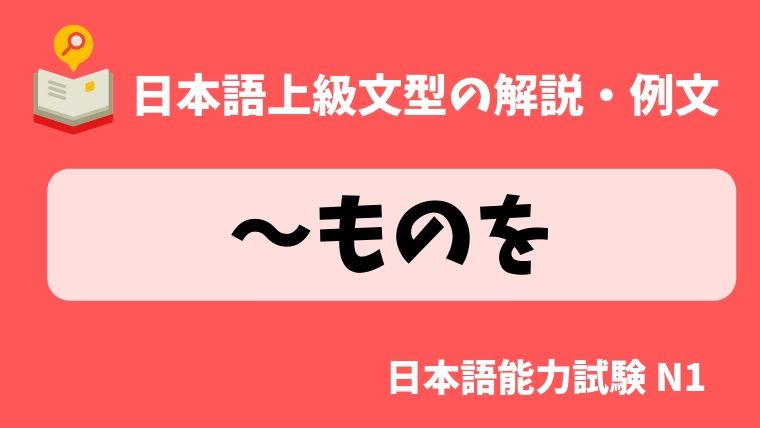(2025/07/09 08:48:26時点 Amazon調べ-詳細)
解説:〜ものを
●意味
〜のに
This pattern expresses regret or criticism about not taking an action, implying that if the action had been taken, the outcome would have been better.
●接続
V(普通形) + ものを
イA(普通形) + ものを
ナAな + ものを
●日本語能力試験(JLPT)のレベル
N1
●備考
①不満、後悔、非難などの気持ちが含まれる。
It includes feelings of dissatisfaction, regret, or blame.
②「ものを」の前には期待が、後ろには事実が来る。
Before ‘ものを,’ there is usually an expectation, and after it, there is a fact.
③「ものを」の後ろが省略される場合もある。
The part after ‘ものを’ can sometimes be omitted.
例文
早く上司にシステムトラブル内容を報告していればよかったものを、報告を怠ったせいで影響が全国にまで及んでしまった。
I should have reported the system trouble to my boss sooner; because I neglected to report it, the impact ended up spreading nationwide.
黙って入ればよかったものを、社長に異議を申し立てた彼は解雇されてしまった。
He should have stayed silent; because he raised objections to the president, he ended up being fired.
もっと勉強していれば受かったものを、いつもゲームばかりしているからそうなるんだ。
If I had studied more, I would have passed; it’s because I’m always playing games.
きちんと、命綱をつけて入れば助かったかもしれないものを。
If I had properly worn a safety harness, I might have been saved.
どうしてこんなに酷くなるまで放っておいたの。もっと早く病院に行って入ればよかったものを。
Why did you leave it until it got so bad? You should have gone to the hospital earlier.
消費期限が過ぎているんだから、食べなければよかったものを。
Since the expiration date has passed, I shouldn’t have eaten it.



